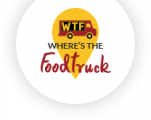
Food Truck Insurance: What You Need to Know to Protect Your Business
Operating a food truck comes with its own set of risks, and having the right insurance coverage is essential to protect your business from potential liabilities. In this article, we’ll explore the importance of food truck insurance and discuss the key types of coverage you should consider to safeguard your business and assets.
Understanding the Types of Food Truck Insurance
- General Liability Insurance: General liability insurance is a fundamental coverage that protects your food truck business against third-party claims for bodily injury, property damage, or personal injury. It provides financial protection in case someone is injured while visiting your food truck or if any property damage occurs due to your business operations. This insurance typically covers medical expenses, legal fees, and settlements or judgments.
- Commercial Auto Insurance: Since your food truck is a mobile business, it’s crucial to have commercial auto insurance to cover any accidents or damages that may occur while on the road. Commercial auto insurance provides coverage for bodily injury and property damage caused by your food truck, as well as collision and comprehensive coverage for damages to your vehicle. It’s important to ensure that your policy reflects the unique aspects of food truck operations, such as coverage for food preparation equipment and inventory.
Additional Insurance Coverage to Consider
- Product Liability Insurance: Product liability insurance is vital for food truck operators as it protects against claims related to foodborne illnesses or allergic reactions caused by the food you serve. This coverage can help cover legal fees, medical expenses, and potential settlements in case a customer alleges that your food caused them harm. It’s important to carefully review the policy to ensure it covers both prepared food and any ingredients or products used in your recipes.
- Workers’ Compensation Insurance: If you have employees working on your food truck, workers’ compensation insurance is essential. This coverage provides benefits to employees who suffer work-related injuries or illnesses. It helps cover medical expenses, lost wages, and rehabilitation costs, while also protecting your business from potential lawsuits related to workplace injuries. *It’s also important to note that many states require this, and often many catering clients will ask for proof of worker’s comp insurance.
Working with an Insurance Provider
To ensure you have adequate coverage for your food truck, it’s recommended to work with an experienced insurance provider who understands the unique risks and requirements of the industry. They can assess your specific needs and help you customize a policy that addresses your business operations and potential liabilities. Be sure to review different insurance options, compare quotes, and ask questions to fully understand the coverage and any exclusions. We’re partnered with FLIP (Food Liability Insurance Program) and encourage you to consider them.
Food truck insurance is a critical component of protecting your business from potential risks and liabilities. General liability insurance, commercial auto insurance, and additional coverage such as product liability and workers’ compensation insurance are all essential considerations. By working with an insurance provider who specializes in food truck insurance, you can ensure your business is adequately protected and focus on what matters most—serving delicious food and creating memorable experiences for your customers with peace of mind.
To avoid insurance claims related to allergies and cross-contamination, check out this article for a brief overview of what to consider to stay safe.







